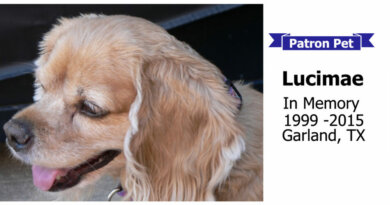Guess which one FDA believes Pet Owners Should be Informed About? – Truth about Pet Food
Regulatory hypocrisy at its finest.
The FDA recently published in the Federal Register a public notice about a pet food regulation. The public notice included a seemingly heartfelt concern from FDA – wanting pet owners to be properly informed about their pet’s food.
“Our animal food labeling regulation at § 501.22(k) is consistent with the regulations requiring the declaration of [ ? ] on human food labels. The purpose of the labeling is to provide animal owners with information on [ ? ] used in animal food. Animal owners use the information to become knowledgeable about the foods they purchase for their animals. [ ? ] information enables a consumer to comparison shop and to avoid substances to which their animals may be sensitive.”
What is your guess to what we redacted from the FDA notice (the [ ? ] part)? What was FDA sharing on the government website, concerned that pet owners need this information to make informed decisions on pet food?
Was it color additives that FDA believes pet owners should be provided information on, can become knowledgeable about, allowed to comparison shop?
Or was it ingredients sourced from diseased, non-slaughtered animal waste material that is considered adulterated per federal law in pet food?
The FDA public notice was regarding dyes in pet food, NOT illegal ingredients. Below is the unredacted quote from the Federal Register:
“Our animal food labeling regulation at § 501.22(k) is consistent with the regulations requiring the declaration of color additives on human food labels. The purpose of the labeling is to provide animal owners with information on the color additives used in animal food. Animal owners use the information to become knowledgeable about the foods they purchase for their animals. Color additive information enables a consumer to comparison shop and to avoid substances to which their animals may be sensitive.”
The FDA believes that pet food labels should be required to disclose dyes in order for pet owners to become knowledgeable, to comparison shop, and to avoid substances we don’t want in our pets food. We agree with this, all color additives should be disclosed on pet food labels.
But the FDA refuses to require pet food labels to disclose ingredients sourced from diseased animals, condemned animal material, or decomposing animal material or ingredients sourced from non-slaughtered animals. The FDA DOES NOT believe this information will help pet owners to become knowledgeable, to comparison shop, and to avoid substances we don’t want in our pets food.
Federal law defines a food (human or animal food) as adulterated if it contains any part of a diseased animal or animal that has died other than by slaughter. But, FDA ignores that law with pet food. Statement from Dr. Steven Solomon Director of FDA Center for Veterinary Medicine in April 2019: “we do not believe that the use of diseased animals or animals that died otherwise than by slaughter to make animal food poses a safety concern and we intend to exercise enforcement discretion.“
In the same April 2019 FDA response as above, Dr. Solomon stated the FDA did not believe proper labeling of pet products “would help consumers to know specifically how pet food differs from human food.”
We adamantly disagree with this position from FDA. If color additives help pet owners to comparison shop and avoid substances they don’t want their pet to consume – why wouldn’t the disclosure of illegal waste ingredients provide consumers the same benefit?
Please send the FDA a message. Tell the agency pet owners deserve to know if their pet’s food contains color additives AND/OR ingredients sourced from diseased animals, condemned animals or animals that have died other than by slaughter.
Pet owners can email the FDA directly at AskCVM@fda.hhs.gov.
Or if you’d like your comment to become part of official record, pet owners can post a comment on the FDA rule regarding disclosure of color additives on pet food labels. Click Here, and on the page that opens – comment by clicking on the blue “Comment” button upper left side of page.
Below is my comment posted on the government website:
Association for Truth in Pet Food agrees with FDA’s belief that pet owners will benefit from pet food label disclosures of color additives. However, we are dismayed that FDA Center for Veterinary Medicine does not require disclosure on pet food labels of illegal ingredients specifically allowed by FDA enforcement discretion.
Dr. Steven Solomon stated in response to Citizen Petition FDA-2016-P-3578 “we do not believe that the use of diseased animals or animals that died otherwise than by slaughter to make animal food poses a safety concern and we intend to exercise enforcement discretion.”
We ask FDA to consider – if color additives help pet owners to comparison shop and avoid substances they don’t want their pet to consume, why wouldn’t the disclosure of ingredients sourced from diseased animals or animals that died otherwise than by slaughter provide consumers the same benefit? To refuse to require pet food labels to disclose this vital information to pet owners is unjust (at the very least).
Wishing you and your pet(s) the best,
Susan Thixton
Pet Food Safety Advocate
Author Buyer Beware, Co-Author Dinner PAWsible
TruthaboutPetFood.com
Association for Truth in Pet Food

Become a member of our pet food consumer Association. Association for Truth in Pet Food is a stakeholder organization representing the voice of pet food consumers at AAFCO and with FDA. Your membership helps representatives attend meetings and voice consumer concerns with regulatory authorities. Click Here to learn more.
What’s in Your Pet’s Food?
Is your dog or cat eating risk ingredients? Chinese imports? Petsumer Report tells the ‘rest of the story’ on over 5,000 cat foods, dog foods, and pet treats. 30 Day Satisfaction Guarantee. Click Here to preview Petsumer Report. www.PetsumerReport.com
Find Healthy Pet Foods in Your Area Click Here

The 2021 List
Susan’s List of pet foods trusted to give her own pets. Click Here to learn more.




